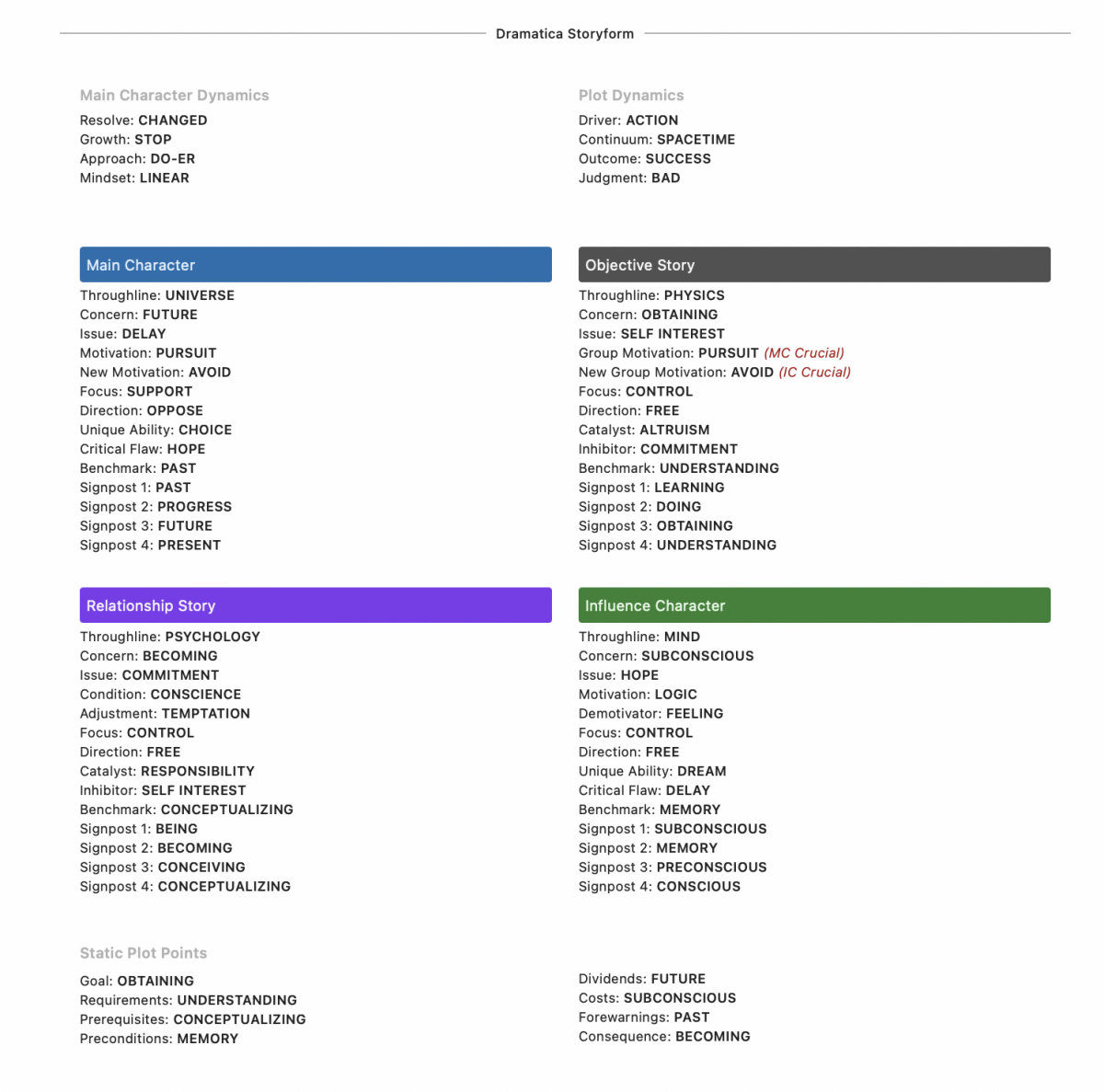
The Harder They Fall
Just missing the mark when it comes to a complete story.
This would be the first time I had to pull a Storyform from Subtxt...and I'm not happy about it.
I loved this film. From the opening scene to the very last shot (well, at least the last shot where they talked about the Devil), I was 100% into The Harder They Fall. As a huge fan of Revenge Westerns, and particularly those that end the way this one ended, I was all in.
Which is why I kinda jumped the gun by loading it up into Subtxt.
Story Issues
As much as I loved The Harder They Fall, the film has some issues with the narrative--more specifically, the story lacks a strong Obstacle Character Throughline and consequently, a weak and almost non-existent Relationship Story Throughline.
A complete story is one where Four Throughlines thoroughly examine the central inequity at the heart of# The Harder They Fall
This would be the first time I had to pull a Storyform from Subtxt...and I'm not happy about it.
I loved this film. From the opening scene to the very last shot (well, at least the final shot where Nat speaks of the Devil), I was 100% into The Harder They Fall. As a massive fan of Revenge Westerns, and particularly those that end the way this one ended, I was all in.
Which is why I kinda jumped the gun by loading it up into Subtxt.
Story Issues
As much as I loved The Harder They Fall, the film has some issues with the narrative. More specifically, the story lacks a strong Obstacle Character Throughline and, consequently, a weak and almost non-existent Relationship Story Throughline.
A complete story is one where Four Throughlines thoroughly examine the central inequity at the heart of a story. Each Throughline expresses a specific point-of-view of this conflict:
- the Objective Story Plot is the They perspective
- the Main Character Throughline is the I POV
- the Obstacle Character is the You POV
- the Relationship Story Throughline is the We perspective
That sense of completeness you feel from a great story is your mind's recognition of the four possible perspectives we use every day to assess conflict.
Leave one out, and you risk the Audience sensing a "hole" in the story.
And that's the case with The Harder They Fall.
An Incomplete Storyform
I did run the story through Subtxt's narrative engine, and this was the Storyform that the app returned:
A Storyform is a schematic of a dramatic argument--to tell a balanced and persuasive argument, the Author must account for these Four Throughlines.
As with most Western storytelling (Western culture, not just the Western genre), The Harder They Fall adequately covers the Objective Story Plot and the Main Character Throughline.
Those are easy.
Where the argument falls apart is in the balancing Throughlines of the Obstacle Character and Relationship Story.
The only natural candidate for Obstacle Character is Idris Elba's character, Rufus Buck. The film even goes so far as to include the all-important "You and I" moment at the end, sensing instinctively that this perspective is needed for the story.
Unfortunately, Rufus goes missing for most of the film, making it difficult for his unique perspective to challenge Main Character Nat Love.
Stagecoach Mary (Zazie Beetz) steps in to take up the slack in what is known in Dramatica theory as an Obstacle Character Hand-off--but she fails to carry Bucks' side of the argument. It's as if the authors behind the film knew she was an essential part of the story but weren't able to correctly match her point-of-view with Bucks--and more importantly, with what was needed to challenge Nat's point-of-view.
This mismatch extends into the Relationship Story. The relationship between Buck and Love is fantastic and fits in nicely with a Concern of Becoming (transforming someone). Still, with only bookends to address this perspective, the Throughline lacks the necessary growth.
As a result, the film comes off cold and heartless for most of the journey--until it kicks in at the end.
Experience Over Story
To be clear, I loved this film. And as someone who has spent a considerable amount of time extolling the virtues of complete storytelling, I can tell you that it is possible to enjoy the experience of a film even if the story is a tale.
An 87% Rotten Tomatoes should tell you everything when it comes to the correlation between a solid, complete story and Audience acceptance (box-office success). While there often is a correlation between the two, there never is causation.
Sometimes, a kick-ass soundtrack and phenomenal cinematography are all you need. 😊
Download the FREE e-book Never Trust a Hero
Don't miss out on the latest in narrative theory and storytelling with artificial intelligence. Subscribe to the Narrative First newsletter below and receive a link to download the 20-page e-book, Never Trust a Hero.


